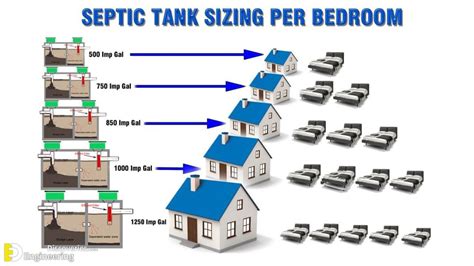How Big Is A Septic System
Ronan Farrow
Apr 03, 2025 · 2 min read

Table of Contents
How Big is a Septic System? A Comprehensive Guide to Sizing
Choosing the right septic system size is crucial for efficient wastewater treatment and avoiding costly repairs. This guide will delve into the factors influencing septic tank size, helping you understand what to expect.
Factors Determining Septic System Size
Several key factors determine the appropriate size of your septic system:
1. Household Size:
This is a fundamental consideration. A larger household with more occupants will generate more wastewater, necessitating a larger septic tank. The number of bedrooms and bathrooms directly impacts the required capacity.
2. Water Usage:
Beyond household size, individual water consumption habits matter. A family with high water usage (frequent showers, laundry, etc.) will need a larger system than a smaller family with conservative habits. Consider your lifestyle and daily water consumption patterns.
3. Local Regulations and Codes:
Building codes and local regulations dictate minimum septic tank sizes. These rules vary significantly depending on your location and the type of soil. Before installation, check with your local authority for specific requirements. Ignoring these can lead to legal issues and system failure.
4. Soil Type and Permeability:
The type of soil significantly impacts the absorption field's efficiency. Well-draining soils allow for smaller absorption fields, while poorly draining soils require larger ones to avoid saturation and backups. Soil testing is crucial for accurate sizing and proper system design. A professional assessment is highly recommended.
5. Type of Septic System:
Different septic system types have varying capacity requirements. Conventional septic systems, for example, differ in size from advanced treatment systems that might be more compact but require more frequent maintenance. The system type influences both the tank and the leach field sizes.
Typical Septic Tank Sizes
While there's no one-size-fits-all answer, here's a general guideline:
- Small Households (1-2 bedrooms): These might require tanks ranging from 750 to 1000 gallons.
- Medium Households (3-4 bedrooms): These typically need tanks ranging from 1000 to 1500 gallons.
- Large Households (5+ bedrooms): These often require tanks of 1500 gallons or more.
Remember: These are estimates. Professional assessment is paramount for accurate sizing.
Consequences of Incorrect Sizing
An undersized septic system leads to frequent backups, unpleasant odors, and potential health hazards due to untreated wastewater. Conversely, an oversized system might be an unnecessary expense.
Conclusion
Determining the appropriate size of your septic system requires a thorough understanding of the factors discussed above. Consult with qualified professionals—septic system designers and installers—to ensure the correct sizing for your specific needs. This proactive approach will prevent costly issues down the line and ensure efficient, long-lasting wastewater treatment.
Featured Posts
Also read the following articles
| Article Title | Date |
|---|---|
| How To Wash Car Undercarriage | Apr 03, 2025 |
| How Big Is 10x14 Rug | Apr 03, 2025 |
| How Big Are Handkerchiefs | Apr 03, 2025 |
| How Big Is 1 70 Oz | Apr 03, 2025 |
| Can Kindle Tell Me How Fast I Read | Apr 03, 2025 |
Latest Posts
Thank you for visiting our website which covers about How Big Is A Septic System . We hope the information provided has been useful to you. Feel free to contact us if you have any questions or need further assistance. See you next time and don't miss to bookmark.
